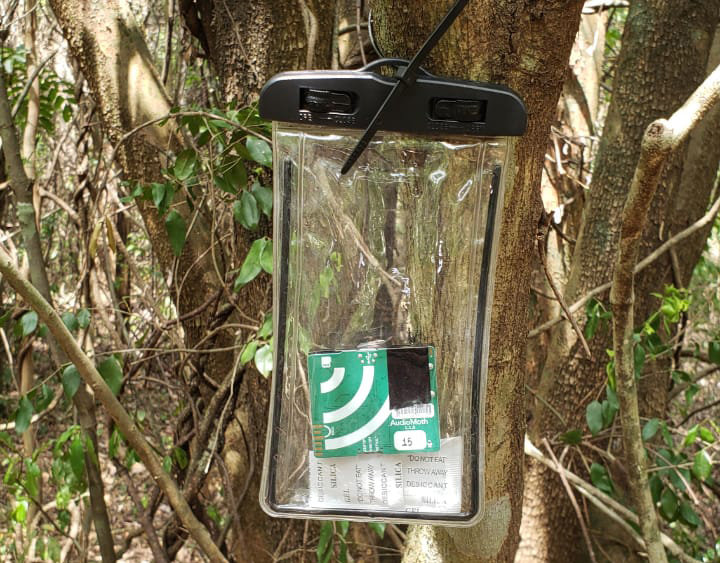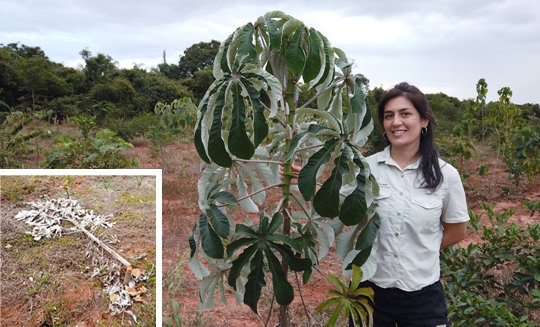By Vienna Leigh | Communications Manager at WeForest
In our Wildlife Corridors project, we’ve partnered with Rainforest Connection to monitor the diversity, distribution and activity patterns of animals by recording ‘Soundscapes’ in our restored areas. The recorders we’ve installed across our sites will record species-specific patterns to identify the presence or abundance of up to 50 species. The data gathered will also contribute to Rainforest Connection’s ‘Audio Ark’ – a digital library of shareable, searchable forest sounds and ecodata for use by scientists and land managers to help protect and conserve the world’s forests.
This is WeForest’s Brazil Country Manager Cris with an Embaúba tree (Cecropia sp.). We know tapirs have been around when we find these fast-growing trees broken (inset), as they love to eat the fresh leaves at the top. But it’s not a problem: the hardy Embaúbas usually resprout, and eventually feed the tapirs again. And as tapirs also eat a lot of other fruits, they contribute to our work by leaving other types of seeds in their droppings, such as palm seeds, to regenerate spontaneously in our restored sites!
Project reports on GlobalGiving are posted directly to globalgiving.org by Project Leaders as they are completed, generally every 3-4 months. To protect the integrity of these documents, GlobalGiving does not alter them; therefore you may find some language or formatting issues.
If you donate to this project or have donated to this project, you can receive an email when this project posts a report. You can also subscribe for reports without donating.
Support this important cause by creating a personalized fundraising page.
Start a Fundraiser
